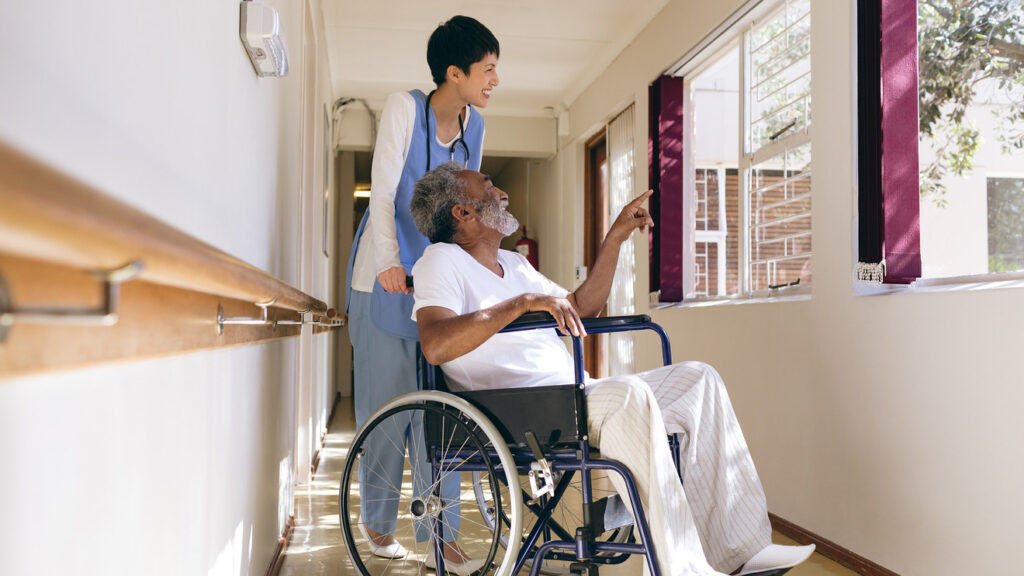Patients in need of care can’t always actively advocate for their own health. They may be too young, or they may be dealing with age-related issues such as dementia or Alzheimer’s or may be in too much pain to listen to their healthcare provider carefully; nevertheless, sometimes a person may need a medical advocate to ensure they receive the adequate care they deserve. Medical advocates can help doctors and caregivers understand the patient’s medical history and risk factors, in addition to catching medical mistakes and even abuse.
- Ask Questions
One of the best ways you can advocate for your loved ones health is by asking questions. Whether they’re information-driven questions or asking the hard questions, such as what happens if a procedure goes wrong, it’s important these questions are asked if you’re loved one can’t for themselves.
Asking questions may sound easy; however, it can be overwhelming as it requires basic healthcare knowledge and detailed information about your loved one’s condition.
- Answer Questions
Your loved one may have many questions about their health, especially when it comes to healthcare procedures. This can be intimidating and overwhelming for someone who is in chronic pain or is already dealing with a bad diagnosis.
As someone’s healthcare advocate, step in whenever you can to help or answer any questions your loved one might have. This may include routinely filling out patient information for them. If any confusing questions are asked, make sure to answer them for your loved one in a manner that doesn’t add unnecessary stress to the situation.
- Bring Medical Information
If you’re loved one is dealing with a difficult diagnosis, this can be very difficult on the patient and loved ones. It can make it easy to overlook basic things, such as bringing crucial medical information with you to an appointment or procedure.
As a medical advocate, make sure to have a copy of the patient’s medical history, medications, personal information, and ID cards with you prior to the appointment.
- Takes Notes
Bring a notepad – don’t be afraid to take notes of what your loved one’s medical provider is telling you. Write down the medication dosage your loved one may need, or what their rehabilitation procedure will look like, or their dietary restrictions leading up to a procedure. This provides a physical record you can return to.
- Look Out for Mistakes
One of the most crucial things you can do as your loved one’s medical advocate is remain vigilant for mistakes. For example, a prescription can be poorly written or furthermore, need further clarification.
While doctors and nurses should be on their feet against errors like this, this doesn’t always mean it’s true. Healthcare providers work extremely long hours and are often understaffed, both of which leave room for medical errors to happen. As an advocate, it’s important to recognize abuse or neglect for your loved ones health.
- Speak Up When Somethings Not Right
Whether you find an error in your loved ones prescription or you’re confused on the rehabilitation after a procedure, it’s important to ask these questions. If you have these questions, it’s likely your loved one does too. It’s important to remain confident in critical medical situations. Do not let a healthcare provider rush you out the door until they answer all of your questions and concerns. As your loved ones advocate, it’s important to fight for them and speak up for them when they are unable to.
- Communicate Your Loved Ones Wishes
While it’s easy to get caught up in our own thoughts and opinions, you are your loved ones medical advocate first. You have to remember you are representing someone else – not yourself. Communicate their concerns and wishes to doctors and nurses, even if you don’t necessarily agree with them. You can discuss your opinion with your loved one behind closed doors, but it’s important to remain confident and communicate clearly and effectively what their wishes are.
- Don’t Give Up
Being a person’s medical advocate can be tiring, uncomfortable, and unpleasant at times. Remember, these are the times your loved one needs you the most. Don’t give up and stay strong for your loved one. Know if you are scared, they are twice as scared. Remind them everything will be okay and you will continue to advocate for them until they are satisfied.
Contact a Medical Negligence and Abuse Attorney in Chicago, Illinois
If your loved one has suffered from medical negligence or abuse, it’s important you reach out to the police immediately and contact an experienced medical negligence and abuse attorney right away.
The seasoned medical negligence and abuse attorneys of Dinizulu Law Group have the knowledge and resources to hold your loved ones healthcare provider(s) accountable. We know this can be overwhelming, and we ensure we do everything to make this an easier process for our clients. Call our office today at (312) 384-1920 for a free, no obligation consultation today or visit our website for additional information.



